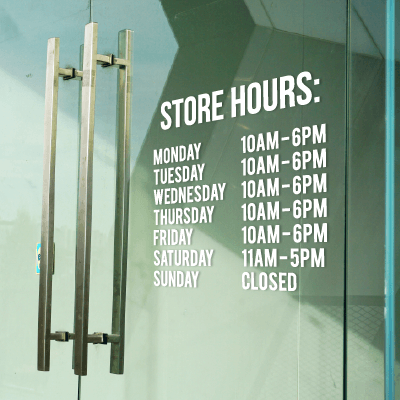
Regardless of business type the hiring and firing of employees is a constant challenge that must be done well to ensure business success. Staffing in restaurants, quick-service and full-service alike, is particularly difficult. As a small business owner looking for stability and exceptional quality service take a look at these solutions to common challenges in restaurant staffing.
Challenge – Dishonest Employees
Let’s be honest, this is a challenge for all types of businesses. What makes it

more challenging in a restaurant setting is the fact that a fast-paced environment that also uses cash can be a big temptation for dishonest employees. Whether it’s during a busy shift or counting and closing up for the day the lure to steal cash is too much for some employees.
Solution:
The greatest solution to this problem is to hire honest employees and erase the problem before there is one. While this is easier said than done there are several things that store or restaurant managers can do to achieve this.
The first is to verify externally the character of a candidate. This can be done through a background check and references. The former may be out of the equation for small restaurants but should definitely be done by any restaurant or store that has the resources to do so. The other solution is to actually check references. References should always be verified with all potential employees. Managers in charge of hiring should make sure that

the references check out and aren’t simply friends or family covering for someone who is actually dishonest.
Other things to look for as part of the hiring process include large time gaps on a resume, a hesitancy to use previous managers as references and a high number of jobs over a short period. All of these things may be early indicators that the employee has had issues at previous jobs.
Post-hire there are several more things that can be done to reduce dishonesty in a restaurant setting. First is to include verbiage in company policies around resume fraud, theft and dishonest actions. This gives you as an employer legal recourse in the case where an employee acts dishonestly.
Employers can also set up checks and balances to reduce opportunities for theft. This can include in-store surveillance as well as practices around counting cash such as manager sign off, manager present during counting, etc.
Having both pre and post-hire policies and practices in place may not prevent all dishonest employees from being hired but it will greatly reduce it. This can go a long way in helping restaurants (and retail environments) reduce theft and improve profits.
Challenge – Lack of Reliability and Social Skills
Another big challenge of restaurant managers in hiring is the fact that often the employees are teenagers. Many teenagers at this point are still unreliable and lack the social skills needed for a restaurant setting. Often they are more worried about the events and social gatherings they are missing out on rather than making their shift. Socially speaking many teenagers simply haven’t found themselves and are insecure when talking with complete strangers in an attempt to take orders in a busy restaurant environment.
Solutions
In both cases hiring managers need to realize that these are in large part driven by the personality of the prospective employee. There are several questions to ask during the hiring process to ascertain whether these things will be an issue.
Reliability questions can center on achievements that display consistency and dependability. For teenagers this may need to be consistently high grades or attendance in school. Extracurricular awards in athletics or other activities may also indicate reliability, as these activities require a great deal of continued practice to achieve. If the candidate touts “one-off’ awards, shows up late to an interview or even attempts to change the interview date or time more than once then these can be immediate warning flags that reliability may be an issue down the road. Another way to gauge reliability is to have multiple interviews that are varied by time and day. As a manager you can give plenty of notice on some and short notice on others to see both how reliable the person might be and how much they are willing to sacrifice to make it to an interview on time. These small indicators can foreshadow the future dependability of someone who may need to work undesirable shifts on weekends or evenings and/or be called at the last minute to fill in for others.

A lack of social skills is not as serious a red flag for managers as is unreliability. This is because many teenagers simply lack the self confidence to interact with customers in a way that shows they know what they are doing and provide excellent customer service. Managers hiring for these roles that require customer interaction should easily be able to gauge from the interview whether a potential employee can carry on a conversation and has the social skills to work well in a high-paced environment where rude customers aren’t uncommon. Employers should strive to ask open ended questions that allow the candidate to respond in depth as well as engage the candidate in conversation outside of formal interview questions to get a feel for the candidate’s ability to interact with others. Employers should remember that someone that appears to be honest and reliable is much easier taught to interact comfortably than the social butterfly that is neither honest nor dependable.
Challenge – Temporary Job
By far the biggest challenge faced by restaurant owners is the fact that the vast majority of their employees will view their job as a temporary job. It’s most likely a part-time high school or college job with no long term career path. This attitude has a carryover impact on the level of effort put forth, the quality of customer service, and even on the bottom line as training costs can soar out of proportion due to high turnover.
Solutions
Ideally managers can be selective in who they are hiring for these roles. The best candidates are oftentimes non-students who for whatever reason need a stable job to feed a family or provide an income. These employees are less likely to view the job as temporary and better incentivized to do good work. More often than not though, small business owners will have a workforce made up of “temporary-minded” employees. To overcome the drawbacks that results from this owners can do several things.
The most impactful thing is to figure out what motivates employees. Most employees in these situations will be motivated by the compensation. Small business owners should find creative ways to compensate their workers better than competitors. Doing so should result in employees who are more willing to work hard and do a good job knowing that if they lose their job that the alternative pays less. Studies have shown that it even helps with employee theft. To make this an effective strategy business owners will need to make the difference in pay significant enough to matter to employees and communicate it to them. While this sounds unreasonable in a low margin industry it should be remembered that teens need less disposable income than adults striving to support a family. Owners will simultaneously need to look to find other areas to reduce costs to retain profitable margins.

While compensation is often thought of as the biggest motivator there are many other ways to achieve this. Public recognition (yes, there’s a reason for those Employee of the Month awards in QSRs) and team or individual bonuses can also make a difference. Perks can include the more complicated, such as employee benefits like Starbucks is known for, or simple perks like an employee point system or even free food and discounts. The real challenge is for managers to figure out what motivates their employees as each employee will be different. Hopefully this occurs during the hiring process but can also be determined and adjusted post-hire.
Arguably the most effective method of offsetting these problems is to develop a relationship of trust and respect for your employees. While they are most likely teenagers, giving them autonomy, real responsibility and trust can go a long way in producing the kind of work and customer service you want to see in your restaurant. Not surprisingly treating your employees as responsible adults often motivates them to reciprocate the trust and treatment in their efforts. While this may lead to more mistakes short term it will pay dividends long term.
The challenges as outlined above of staffing a restaurant will most likely never change. Notwithstanding, by putting into practice these tips during both the hiring and post-hiring stages restaurant owners can greatly reduce the drawbacks created by this industry’s unique workforce.



































